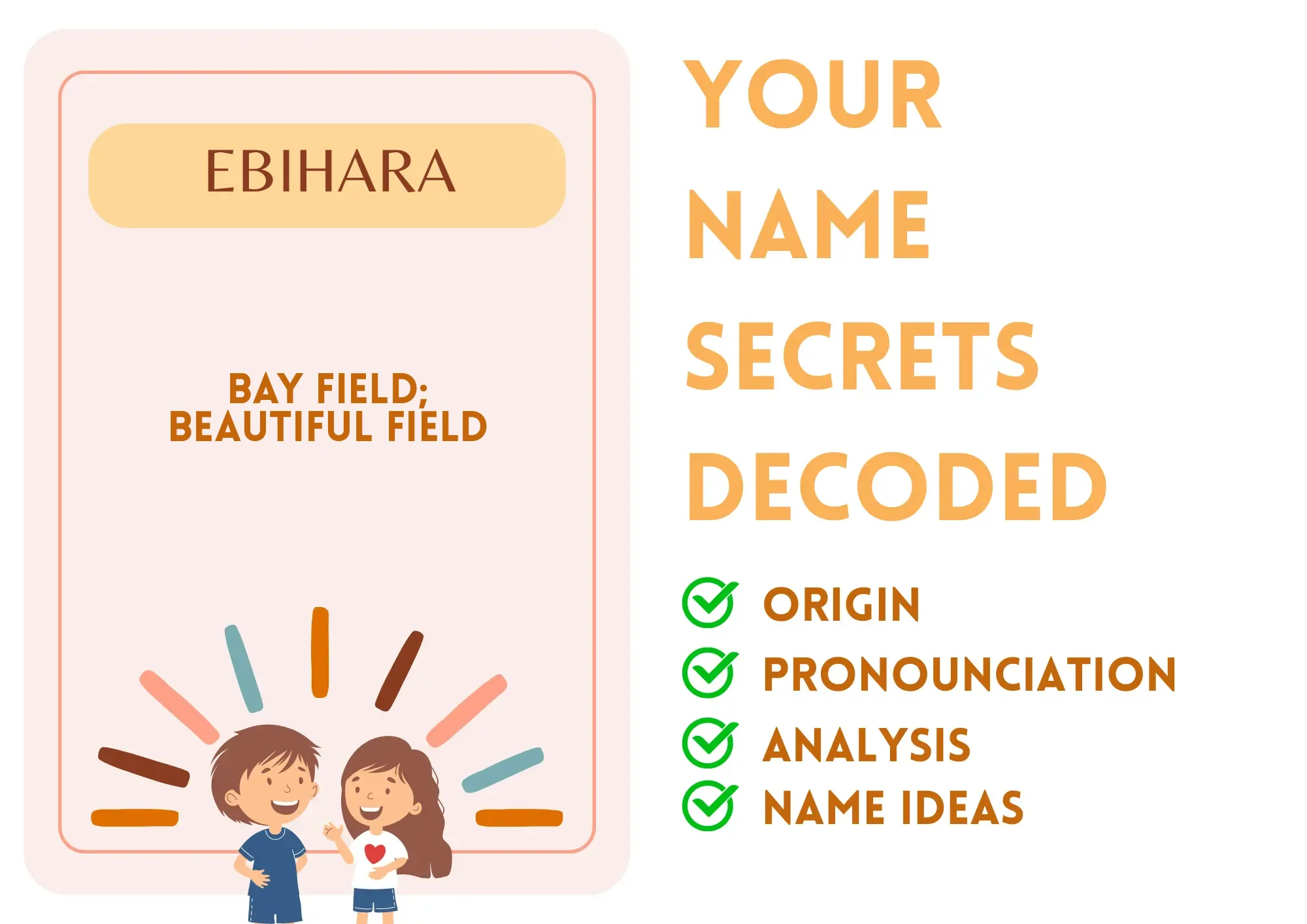
Ebihara
Ebihara is a unique name of Japanese origin, often associated with the meanings of 'field' (bara) and can imply a connection to nature and tranquility. This name carries a cultural resonance, reflecting the beauty and depth of the Japanese language and landscape. Although not exceedingly common, it is used for both genders, usually leaning towards feminine but with a unisex appeal.
The name is viewed positively, often evoking feelings of peace, nature, and simplicity. It is relatively easy to pronounce and write, consisting of three syllables. Common nicknames may include Ebi or Hara, allowing for a more casual approach.
Basic Information
Gender: Unisex
Sounds Like: ay-bee-hah-rah
Pronunciation Explanation: Each syllable is pronounced clearly: 'ay' as in 'bay', 'bee' as in the insect, 'hah' as in a laugh, and 'rah' as in the sound of a lion.
Summary and Meaning
Meaning: bay field; beautiful field
Origin: Ebihara has Japanese origins, derived from the kanji characters that denote its meaning related to nature.
Usage: Ebihara is traditionally more feminine in usage but is increasingly seen as unisex.
Name Number (Chaldean)
Name Number (Pythagorean)
Popularity (Global Rank)
Overall: 341312
Boys:
Girls: 77177
Most Popular in
Religious and Cultural Significance
Religion: Shinto/Buddhism
Background: In Japanese culture, names often relate to spirituality and nature, reflecting the connection to Shinto and Buddhism, which emphasize harmony with nature.
Cultural Significance: Ebihara is appreciated for its simplicity and connection to nature and rural settings, often evoking images of serene landscapes.
Historical Significance: While Ebihara does not hold specific historical significance, the blend of its kanji reflects the appreciation for natural beauty, typical of traditional Japanese naming practices.
Popular Culture
Literature and Mythology: Names similar to Ebihara are often found in Japanese folklore and poetry, where nature plays a significant role.
Movies and Television: While there are no prominent movie characters named Ebihara, variations of the name can be found in anime and manga.
Feelings and Perceptions
Perception: Ebihara is perceived as unique and serene, often bringing to mind peace and tranquility associated with nature.
Positive Feelings: Natural, serene, unique, beautiful, calm.
Negative Feelings: Might be difficult for non-Japanese speakers to pronounce or spell correctly.
Practical Considerations
Ease of Writing and Calling: Ebihara is moderately easy to write; however, its pronunciation may challenge those unfamiliar with Japanese phonetics. It comprises three syllables and less than eight letters.
Common Typos and Misspellings: Ebahara,Ebihara,Ebihira,Ebihara
Common Nicknames: Ebi,Hara
Ebihara Popularity
Ebihara Usage and Popularity By Country
| Country | Rank (Overall) |
|---|---|
| Japan | 4614 |
| United States | 344452 |
Ebihara Usage and Popularity By City
| City | Rank (Overall) |
|---|
Compatibility Analysis
Famous Persons Named Ebihara
No results found for Ebihara.
Related Names
Similar Sounding Names:
Emihara,Yuhara,Ikihara